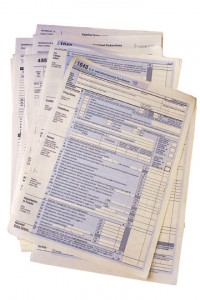A recent case in the Tax Court decision, Lucas, T.C. Memo. 2018-80 held that legal and professional fees related to an investment advisory firm partner’s divorce do not qualify as business expenses. The Tax Court determined that they were instead nondeductible personal expenses. One of Mr. Lucas’ arguments was that the millions in legal and professional fees …
Permanent link to this article: https://betweenthenumbers.net/2019/02/legal-fees-in-divorce-disallowed-as-a-business-expense/
Feb 08
IRS Whistleblowers Set New Record
A concerted effort by the IRS to improve its whistleblower reporting program is showing benefits to both sides. IRS whistleblowers collected $312 million in fiscal 2018, a huge increase over the $33.9 million received in the prior year. The IRS collected $1.4 Billion from the tips provided by these whistleblowers. In order to collect an …
Permanent link to this article: https://betweenthenumbers.net/2019/02/irs-whistleblowers-set-new-record/
Jan 23
Tinder Age Discrimination Suit
Tinder will provide an estimated $17.3 million in subscription features and cash to settle an age discrimination suit which claims the company overcharged its older generation of dating app users. Tinder’s policy of charging an extra $10 per month to its Tinder Plus users over the age of 30 has been called a violation of …
Permanent link to this article: https://betweenthenumbers.net/2019/01/tinder-age-discrimination-suit/
Jan 21
Happy Tax Alleges False Advertising Claim Against H&R Block
Happy Tax is a smaller, lesser known competitor to H&R Block, one of the leaders in the tax preparation industry. Happy Tax alleges that H&R Block misleads the public by advertising its upfront and transparent pricing plan is available “only from H&R Block.” Happy Tax contends this pricing strategy was Happy Tax’ innovation, and that it …
Permanent link to this article: https://betweenthenumbers.net/2019/01/happy-tax-alleges-false-advertising-claim-against-hr-block/
Jan 19
When Litigation Proceeds Are Taxable
Economic damages should return a plaintiff to the position they would have been in “but for” the underlying improper act[s] by the defendant. They should not provide a windfall to plaintiff. In a similar vein, whether such damages are taxable is generally related to how the proceeds would have been treated if obtained in the …
Permanent link to this article: https://betweenthenumbers.net/2019/01/when-litigation-proceeds-are-taxable/
Jan 18
Historic Material Adverse Effect (MAE) Ruling Illustrates Ways to Establish One
In December 2018, the Delaware Supreme Court upheld a judgement in the matter of Akron, Inc. v. Fresenius Kabi AG wherein the Court of Chancery for the first time ever found that a “Material Adverse Effect” (“MAE”) justified a buyer’s termination of a merger agreement. Establishing a MAE has historically proven difficult, even when the …
Permanent link to this article: https://betweenthenumbers.net/2019/01/historic-material-adverse-effect-mae-ruling-illustrates-ways-to-establish-one/
Jan 16
Rihanna sues her father over use of their shared name
Although many people know her simply as Rihanna, the worldwide superstar’s full name is Robyn Rihanna Fenty. Rihanna has trademarked the name “Fenty” and used it for various branded ventures, most notably her successful beauty line Fenty Beauty. Certainly the name has value and is worth protecting. As reported by TMZ, Rihanna is currently endeavoring to …
Permanent link to this article: https://betweenthenumbers.net/2019/01/rihanna-sues-her-father-over-use-of-their-shared-name/
Jan 03
Defend Trade Secrets Act Provides Federal Protection from Misappropriation
Defend Trade Secrets Act “DTSA” now provides federal protection against and remedies for trade secret misappropriation that previously existed via the state courts. DTSA defines a trade secret as: “All forms and types of financial, business, scientific, technical, economic, or engineering information, including patterns, plans, compilations, program devices, formulas, designs, prototypes, methods, techniques, processes, procedures, …
Permanent link to this article: https://betweenthenumbers.net/2019/01/defend-trade-secrets-act-protects-against-misappropriation/
Nov 15
Couple’s Homeless Man Generosity Story is an Alleged Fraud
After raising nearly $400,000 in donations on popular charitable giving site GoFundMe with an inspiring story of a homeless man who gave his last $20 to help a stranded woman motorist, the story is now alleged to be a fraud perpetuated by a couple in conspiracy with him. The three have been charged with second-degree theft …
Permanent link to this article: https://betweenthenumbers.net/2018/11/gofundme-couples-homeless-man-generosity-story-is-an-alleged-fraud/
Nov 09
NFL Player Claims Lost Earnings of $180 Million
It has been reported that Sharrif Floyd, a former Minnesota Vikings defensive tackle, will sue the notable surgeon who he claims prematurely ended his NFL career. Floyd is claiming damages of $180 million, an amount described as his lost future earnings in the NFL. Many have questioned the reasonableness of the reported claim. While NFL …
Permanent link to this article: https://betweenthenumbers.net/2018/11/nfl-player-claims-lost-earnings-of-180-million/








